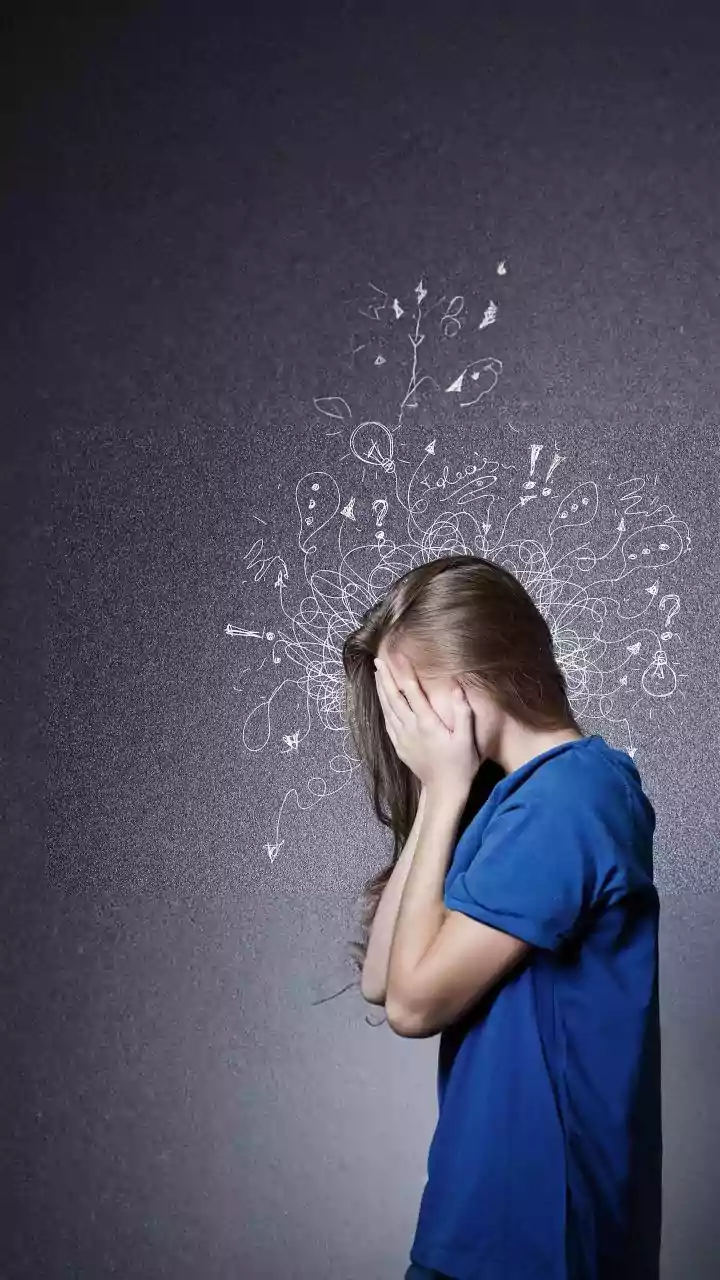Understanding Anxiety's Grip
Anxiety often manifests as persistent worry, restlessness, and difficulty concentrating. It can significantly affect daily life, hindering productivity
and overall well-being. Symptoms range from physical manifestations like rapid heartbeat and fatigue to emotional distress such as irritability and a sense of dread. The constant state of alert can be exhausting and lead to further mental health challenges. Addressing anxiety involves identifying triggers and seeking effective coping mechanisms to manage its impact, improving the quality of life. Various therapies and lifestyle adjustments can assist in controlling anxiety levels. Practicing mindfulness, engaging in physical activities, and building a strong support system can be beneficial. Additionally, recognizing and confronting anxious thoughts, combined with healthy habits, contributes to creating a balanced and resilient mindset.
Yoga: Natural Anxiety Remedy
Yoga presents a holistic method to manage anxiety, combining physical postures, breathing exercises, and meditation to calm the nervous system. Regular yoga practice fosters relaxation, reduces stress hormones, and promotes feelings of peace. The physical postures, or asanas, release tension stored in the body, while breathing exercises, known as pranayama, regulate the breath and calm the mind. Meditation enhances focus and awareness, enabling individuals to detach from anxious thoughts and cultivate a sense of inner calm. Yoga’s focus on self-awareness also empowers individuals to recognize anxiety triggers and develop coping strategies. Incorporating yoga into a daily routine can lead to long-term benefits. Individuals may observe a decrease in anxiety symptoms and improved emotional resilience. Yoga is a readily available and accessible tool for managing mental health. Whether you are new to yoga or experienced, you can customize practices to fit specific needs and enjoy the benefits of yoga.
Simple Yoga for Everyone
The beauty of yoga is its adaptability and inclusivity. Numerous poses can be tailored for all fitness levels. Simple postures include deep breathing exercises like diaphragmatic breathing, which helps to slow down the heart rate and reduce feelings of panic. Gentle poses like Child’s Pose and Legs-up-the-Wall are relaxing and help relieve stress. For beginners, it is easy to find guidance through online videos or local yoga classes. The aim is not necessarily perfection but consistency and attentiveness to the body's needs. Holding each pose for a few breaths allows you to experience the benefits of increased flexibility and reduced stress. Practicing these poses regularly will help build body awareness and calm the mind. This approach can be a sustainable tool for managing daily stress. Make sure to seek the advice of a healthcare professional or a qualified yoga instructor if you have any health concerns. This simple practice is accessible for everyone.
Yoga for Daily Routine
Integrating yoga into your daily schedule can be surprisingly simple. Start with just a few minutes each morning or evening. Dedicate time to gentle stretches and deep breathing. Even a short session can set a calming tone for your day. If you are short on time, focus on poses that specifically target anxiety, such as forward folds and twists. Incorporate mindfulness by concentrating on your breath. You can use yoga as a method to improve overall health. You can also use it as a way to take breaks from work or other tasks. This enables you to refresh your mind and body. Consistency is key, so aim for regular practice, even on hectic days. Make yoga a personal time to slow down. It will help you cultivate a sense of inner peace. You can improve mental health. Regular practice will ultimately lead to a positive and sustainable lifestyle.
Yoga to Fight Depression
Yoga serves as a complementary therapy for individuals dealing with depression, offering several therapeutic benefits. Yoga helps balance the body's neurochemical system. Certain yoga poses can increase serotonin and reduce cortisol. These help in managing depression. Breathing exercises help regulate mood and reduce feelings of sadness. Through mindfulness and meditation, yoga helps individuals detach from negative thought patterns. This promotes mental clarity. Yoga also fosters a sense of self-awareness, helping individuals recognize and manage their emotions. The physical activity involved in yoga releases endorphins, which have mood-boosting effects. By integrating yoga into a treatment plan, individuals can experience a gradual reduction in depressive symptoms. They can also promote overall emotional balance, increasing their well-being. For those battling depression, consulting with a healthcare professional is essential. The advice and guidance can maximize the effectiveness of yoga and improve outcomes.
Yoga for Stress Relief
Yoga efficiently combats daily stress by focusing on techniques that relax the body and calm the mind. The combination of physical postures, breathing exercises, and meditation promotes a state of relaxation. This in turn decreases the production of stress hormones. Poses like forward folds, twists, and restorative postures encourage deep breathing. This improves focus, and helps in alleviating muscle tension. Breathing practices such as alternate nostril breathing, also known as Nadi Shodhana, help calm the nervous system. They also promote mental clarity. Regular yoga helps in developing resilience towards stress. It helps build a stronger mind-body connection. Through yoga, individuals develop awareness of their physical and emotional responses to stress, enabling them to respond to stressors with greater ease. Daily yoga practice will ultimately lead to a reduction in stress levels. This will improve overall well-being. This holistic approach provides a pathway for those seeking to maintain mental balance.

















